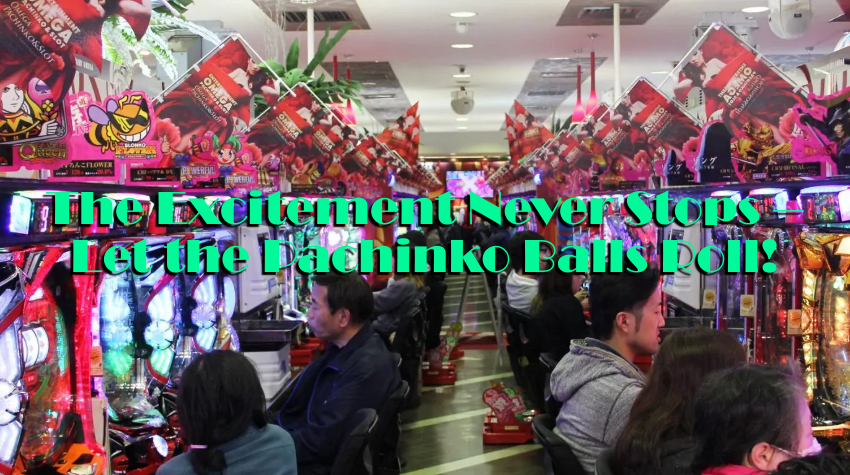Pachinko is one of Japan’s most iconic forms of entertainment—part arcade game, part slot machine, and part cultural phenomenon. Yet, despite its gambling-like nature, Pachinko operates under a unique framework defined by Pachinko Gambling Laws. Unlike traditional casino games, it doesn’t fall directly under Japan’s strict gambling regulations, thanks to clever legal loopholes and an exchange system that has been in place for decades.
In this guide, we’ll dive deep into Pachinko Gambling Laws, exploring how they work, why Pachinko is technically not classified as gambling, the regulatory framework behind it, and what players should know if they want to enjoy the game responsibly. Whether you’re a beginner curious about Pachinko’s legality or an experienced player wondering about future reforms, this article will give you a complete picture of the law and its impact on both players and parlors.
📎 If you’re new to the game itself, you can check out this detailed overview: What is Pachinko?
Introduction to Pachinko and Its Legal Status
Pachinko’s Place in Japanese Culture
For decades, Pachinko parlors have been a staple across Japan. You’ll find them glowing with neon signs in busy urban centers like Tokyo, Osaka, and Nagoya, as well as in smaller towns. Pachinko is not only a leisure activity but also a massive industry, generating billions of yen annually.
Despite its similarities to slot machines, Pachinko is marketed as “amusement” rather than “gambling.” This categorization is key to how it avoids Japan’s strict anti-gambling laws.
Why Pachinko Isn’t Classified as Traditional Gambling
Japanese law prohibits most forms of gambling, with limited exceptions like horse racing, certain motorsports, and national lotteries. Pachinko, however, bypasses these laws by technically rewarding players with prizes instead of cash.
Here’s how the system works:
- You win pachinko balls during gameplay.
- You exchange those balls for tokens or prizes (such as electronics, snacks, or trinkets).
- You then take the tokens to a nearby exchange center—separate from the parlor—where you can trade them for cash.
This three-step system ensures that parlors aren’t directly paying cash, allowing them to operate legally.
How Pachinko Gambling Laws Work
The Prize Exchange System Explained
The prize exchange is the backbone of Pachinko’s legality. By law, parlors can only award goods, not cash. Yet, through coordination with third-party exchange shops, the goods can quickly be converted into money.
- Step 1: Win balls and exchange them for prizes at the parlor.
- Step 2: Take prizes to a nearby exchange center (often located just outside the parlor).
- Step 3: Receive cash equivalent for those prizes.
Because the parlor and the exchange shop are legally considered separate entities, authorities classify this as amusement, not gambling.
Legal Loopholes That Keep Pachinko Running
The system exists in a legal grey area. Everyone—players, operators, and regulators—understands that Pachinko is essentially gambling. However, because the law doesn’t directly prohibit this prize-exchange mechanism, Pachinko parlors continue to operate under heavy regulation but with tacit government acceptance.
Regulatory Framework in Japan
National Regulations and Local Oversight
Pachinko is regulated by Japan’s Entertainment Business Control Law (風営法, fūeihō). This law governs businesses that may affect public morals, such as nightclubs and adult venues, but Pachinko parlors are included due to their quasi-gambling nature.
Local governments also play a role by issuing operating permits, monitoring compliance, and controlling how parlors advertise.
Compliance, Audits, and Industry Monitoring
Authorities regulate machine payout rates, enforce restrictions on advertising, and conduct inspections. Parlors that violate the law risk fines, license suspension, or closure.
For example:
- Payout ratios are capped to prevent excessively high returns.
- Parlors must ensure transparency in machine programming.
- Machines undergo routine audits to prevent tampering.
Pachinko and Gambling Debates
Supporters’ Perspective: Entertainment and Economy
Supporters argue that Pachinko is a harmless form of entertainment, similar to playing arcade games or claw machines. It also supports a massive industry, employing thousands and generating tax revenue.
Critics’ Perspective: Addiction and Legal Grey Areas
Critics point out that Pachinko’s legal framework allows for gambling in disguise. Concerns include:
- Addiction: Pachinko addiction is a documented social issue.
- Money Laundering: Critics fear that the exchange system may be misused.
- Ethics: The separation of parlors and exchange shops is seen as a technicality rather than a meaningful safeguard.
Impact on Players
What Players Need to Know Before Playing
As a player, you’re not breaking the law by playing Pachinko. However, it’s essential to understand the rules:
- Parlors won’t give you cash directly.
- Always use official exchange shops.
- Be aware of your limits—Pachinko can be addictive.
Legal Risks and Safe Play Guidelines
While players are not targeted legally, illegal parlors occasionally operate without proper licensing. Always play at licensed, reputable parlors to avoid risks.
Future of Pachinko Gambling Laws in 2025 and Beyond
Possible Legal Reforms
Japan has slowly begun expanding regulated gambling with integrated resorts (IRs) and legalized casinos. Some lawmakers and analysts suggest Pachinko could eventually face stricter gambling laws to align with these developments.
Influence of Online Pachinko and Casinos
With online casinos and digital Pachinko growing in popularity, regulators may revisit how Pachinko fits into the legal landscape. Questions include:
- Should online Pachinko follow the same prize-exchange model?
- Will digital platforms face stricter controls than physical parlors?
Conclusion

\ The Excitement Never Stops – Let the Pachinko Balls Roll! /
Pachinko occupies a unique and fascinating place in Japan’s legal system. Thanks to its prize-exchange system and regulatory loopholes, it thrives as a multi-billion-yen industry while avoiding strict gambling bans.
For players, the key takeaway is simple: Pachinko is legal, but not without controversy. It’s classified as amusement, yet it functions very much like gambling. Understanding these laws ensures that you play responsibly and avoid falling into potential pitfalls.
If you want to continue learning about Pachinko and other casino-style games in Japan, Casino Savvy provides in-depth guides and strategies. Visit Casino Savvy for more trusted insights into the gaming world.









Comments